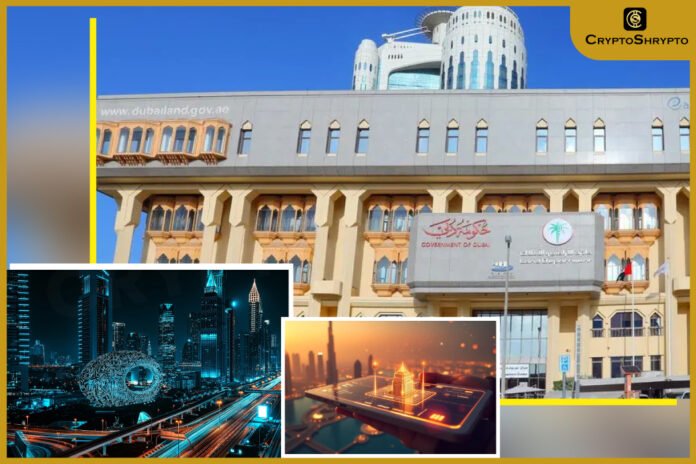Dubai has officially launched the Middle East and North Africa (MENA) region’s first licensed tokenized real estate project, signaling strong regional interest in real-world asset (RWA) tokenization. The initiative reflects the city’s growing status as a global hub for blockchain and digital assets.
Announced by the Dubai government, the project is a collaboration between the Dubai Land Department (DLD), the Central Bank of the UAE, and the Dubai Future Foundation. Tokenized real estate assets will be tradable on the newly introduced “Prypco Mint” platform, with Zand Digital Bank designated as the pilot phase banking partner.
Investors can now buy tokenized shares in ready-to-own Dubai properties, with investments beginning at just 2,000 AED ($545). Initially, the pilot phase is restricted to UAE ID holders and all transactions will be settled in dirhams (AED), excluding the use of cryptocurrencies. However, the government has indicated plans for international expansion.
The project rollout follows a regulatory update from Dubai’s Virtual Assets Regulatory Authority (VARA) on May 19, allowing RWA tokenization and secondary market trading. This move comes after an earlier agreement in April between DLD and VARA to integrate property registry systems with tokenization, aiming to attract global investors and boost market liquidity.
Dubai’s initiative highlights a broader trend as the UAE actively positions itself as a crypto-friendly jurisdiction. In May, Dubai partnered with Crypto.com to facilitate crypto payments for government services, further signaling openness to blockchain innovations.
Real estate tokenization is seen as a key application of blockchain technology, enhancing liquidity for traditionally illiquid assets and opening access to retail investors. The global real estate tokenization market is projected to hit $19.4 billion by 2033, with an annual growth rate of 21%, according to Custom Market Insights.
While companies like RealT and Metlabs have found success in this space, others have faced challenges navigating complex regulations. Dubai’s government-led approach may provide a blueprint for overcoming such barriers in the future.




